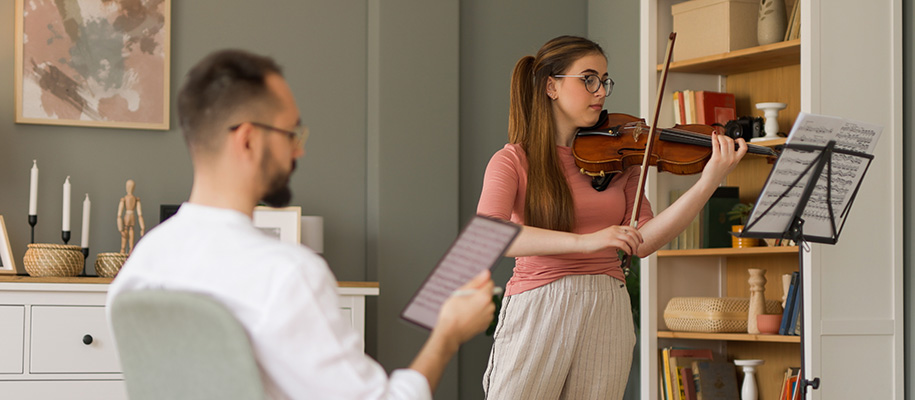The period between January 15 and March 15 is one of the most grueling for high school seniors planning to major in Music: most conservatories, colleges, and universities hold their live auditions during this time. A music-bound student, especially one majoring in Performance, should expect to make trips almost every weekend during these months to participate in auditions.
For example, if a student has applied to nine schools, then nine live auditions must fit within the 12-week window, sometimes with auditions on opposite coasts falling on the same weekend. If you don’t plan properly, this can cause intense stress for you and your family members. So, what are some things you can do to prepare for your music college auditions?
Keep a schedule
Some schools will hold multiple audition dates per instrument. I recommend using a paper calendar when mapping out your dates so you can see everything in front of you as you coordinate travel days, lessons, campus tours, and everything else. Put all audition date options for each school on this calendar, just in case you need to request to change your date because another school conflicts. Note: If two schools are holding their auditions on the same date, write or call both offices of admission to discuss the conflict.
Stay ahead of schoolwork
Since you may have to miss school to either appear for or travel to auditions, try to minimize your second-semester class load and stay ahead on your assignments. If it’s an option, take a free class block in your schedule that allows you to get in some extra practice while at school. This will mean you fit in more practice sessions each day and have more time to study at home after school.
Related: What Are Music School Auditions Really Like?
Create a budget and start saving
As you travel from school to school for live auditions, costs are going to add up and things can get expensive. It’s best to put aside some funding and create a budget for yourself as early as you can before you start traveling for auditions. Include the following allowances for each school you're visiting and auditioning for:
- Transportation to and from the audition (flight, bus, rental car, etc.)
- Lodging
- Food
- Possible lesson fee
- Cost of a parent flying with you
If possible, try to schedule auditions conveniently for schools that are in the same area. Bundling your visits into fewer trips will save you and your family time, energy, and money in the long run.
Plan out recovery time
Make sure to build a day into your schedule after each audition for rest and recovery. This rest and recovery day means a day completely away from your instrument—don’t practice or attend rehearsal. This will give you a true mental and physical break. The college music audition process is a marathon, not a sprint. Rest and recovery days are necessary to help you play your best at the right times.
Related: The Experts’ Choice: Options for the Musician Who Doesn’t Want to Attend a Conservatory
Studying music takes a lot of discipline, but as a musician or a singer, you likely already know that. Do yourself a favor and give yourself plenty of time to prepare for your auditions by considering your schedule and schoolwork ahead of time. While most students are only planning around campus visit tours and maybe an interview or two, you like to have auditions stacked up throughout your visits. Stay organized and get help from others during this tiring but rewarding experience so it doesn't overwhelm you and affect your best performance!
Start looking for your perfect music college with resources like our College Search tool and featured performing arts colleges lists.





